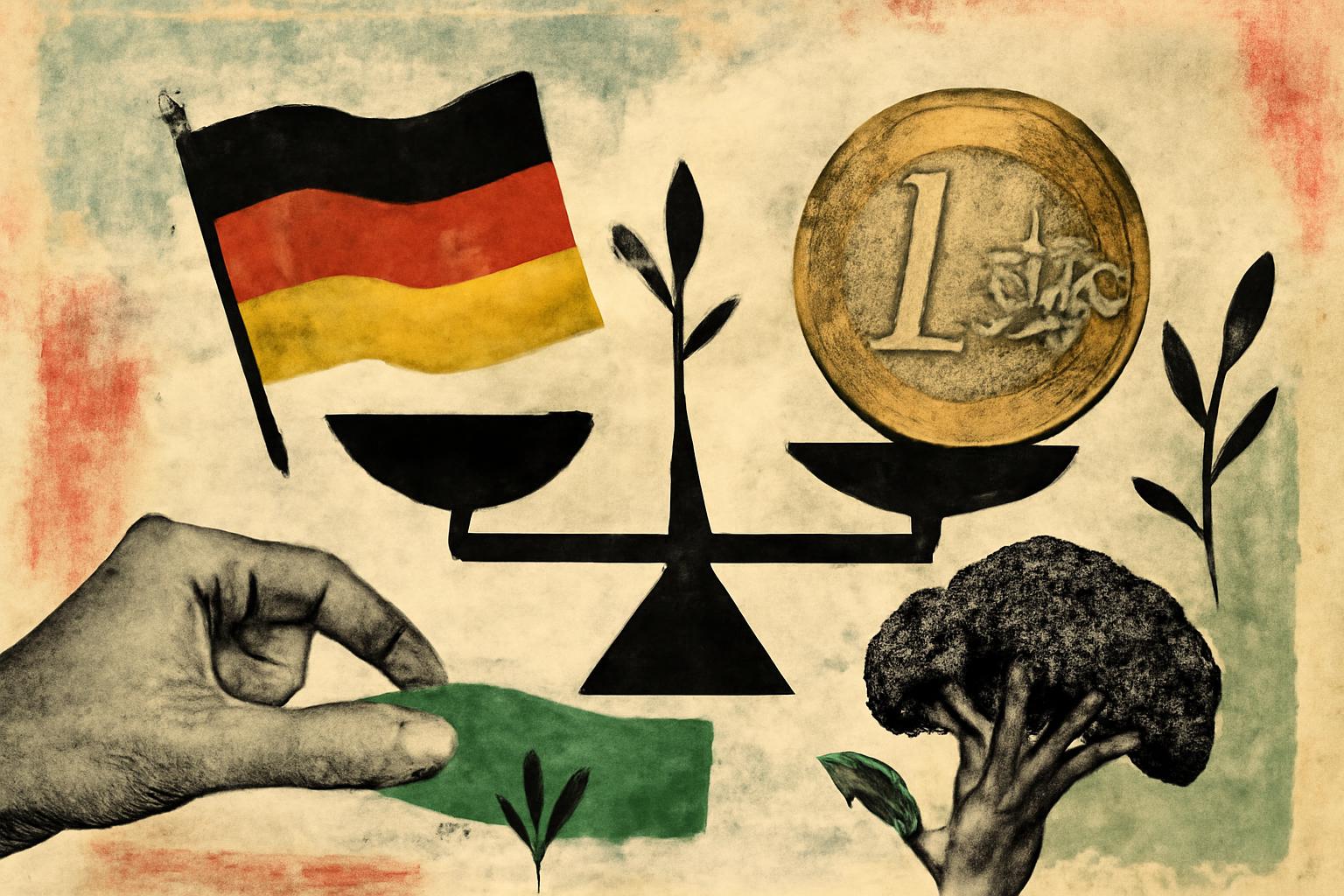Germany’s current drumbeat on climate and meat reads like a case study in state infighting over who should dictate a diet, not a sober assessment of what markets and rights actually require. The Umweltbundesamt points to livestock as a major greenhouse-gas source—methane from cattle, nitrous oxide from manure, and knock-on effects like drained wetlands and deforestation for feed. Yet the ministers, Rainer and Schneider, duck the clearest scientific connection in public remarks, leaving policy with more slogans than answers. That is not surprising from a system that wants to fix prices and behavior from above rather than let people, markets, and private law sort through costs and benefits.
Hayek answers this with his blunt reminder: the curious task of economics is to show how little we know about the things we think we can design. The price system exists precisely because it encodes dispersed knowledge no centralized planner can ever grasp. When you try to translate climate risk into a top-down mandate—whether by speech, by law, or by tax—you replace the information contained in consumer choice and private contracts with bureaucratic guesswork. If meat imposes climate costs, the truthful signal is not a politically chosen target but the way prices, property rights, and liability steer production and consumption. The state should not assume it has the knowledge to optimize an entire national diet.
Nozick would push the analysis further toward rights and coercion. Taxing meat to push a climate agenda is a coercive transfer of wealth, a form of forced redistribution that violates the core intuition of a rights-based order: individuals own themselves and their property, and the legitimate function of the state is to protect those rights, not to engineer preferences. If there are externalities, the proper recourse is private liability and voluntary exchange under clearly defined property rights, not a blanket tax that punishes entire groups for the choices of others. A climate policy that builds coercion into food prices treats people as means to a collectivist end, not as ends in themselves.
Rand would insist that the moral grounding of any policy is respect for individual judgment and rational self-interest, not bureaucratic moralism. The notion that meat consumption should be weaponized as a symbol of health, identity, and sustainability—while officials hedge their stance—exemplifies the collectivist drift that Rand warned against. The answer to concerns about climate and health is not a centralized campaign to reshape culture, but a marketplace where individuals freely choose, informed by honest information, and where producers compete to meet demand without compulsion from the state. If people want lower meat intake for personal reasons, they will adjust; if they don’t, the state has no rightful authority to force them to.
The broader picture is a state attempting to import “climate protection” into constitutional vocabulary and into the national grocery basket. But the constitutional claim to high-priority climate policy does not license coercive diet management; it merely exposes the fragility of a system that treats every social decision as a candidate for state engineering. The cultural claim that meat is a symbol of identity makes policy debates more performative and less focused on rights and prices; a libertarian view treats identity as a personal matter, resolvable through voluntary association and market dialogue rather than through top-down mandates.
Meanwhile, the health guideline from the German Nutrition Society—limiting meat to a few hundred grams weekly—illustrates a market phenomenon in reverse: what should be a personal or family choice becomes a public policy target. The fact that average consumption runs far higher shows how incentives, subsidies, and information (or their absence) shape behavior more powerfully than proclamations about “what is good for the climate.” If a climate-friendly diet is truly desirable, let it emerge from voluntary choices, better information, and liability for real harms, not from a tax code that treats freedom as a loophole to be closed.
Face it: the urge to micromanage meat intake through government power is a textbook misuse of the state. If climate externalities are real, address them with narrowly tailored responsibility and private enforcement, not with coercive price controls on food. Let prices reveal real costs, let property rights and contract law allocate remedies, and let individuals pursue their rational self-interest in a free market. In a world where knowledge is local, dispersed, and imperfect, the only sane climate policy is one that preserves liberty, not one that substitutes state omniscience for human judgment.
